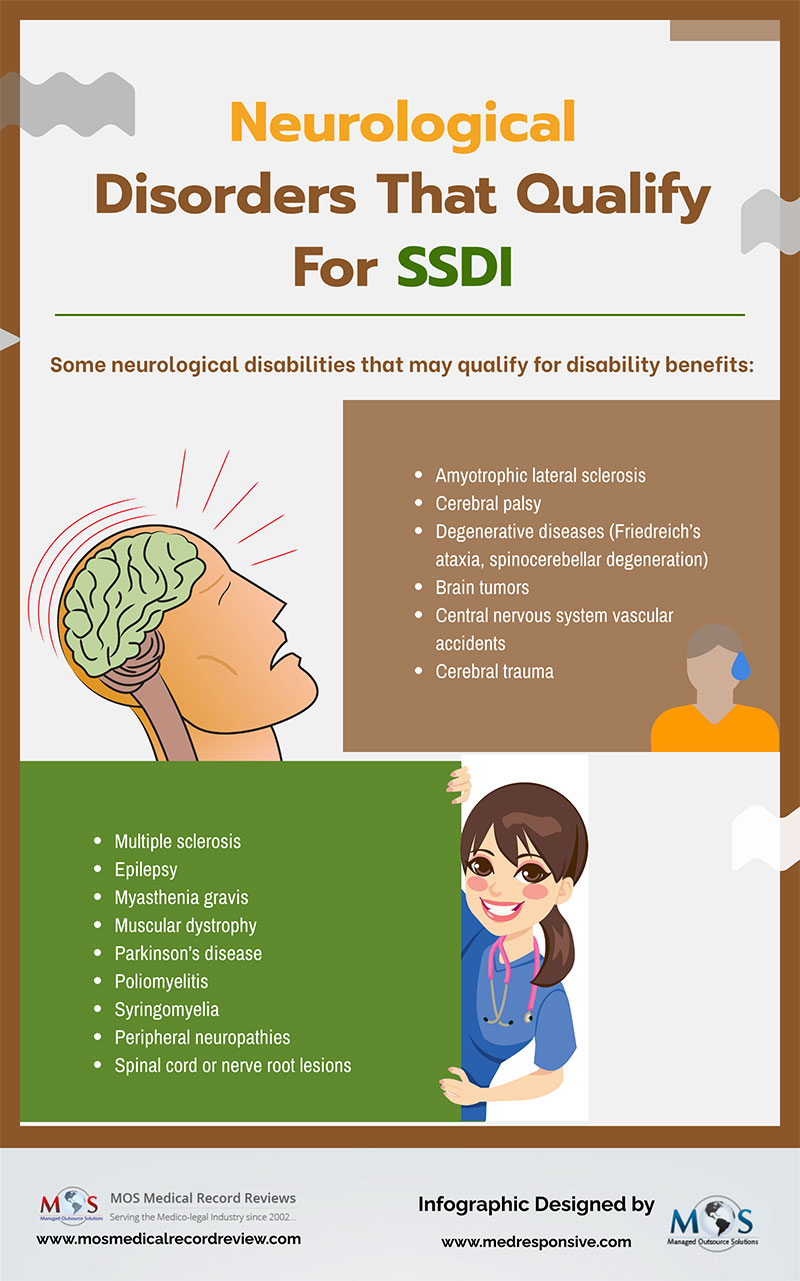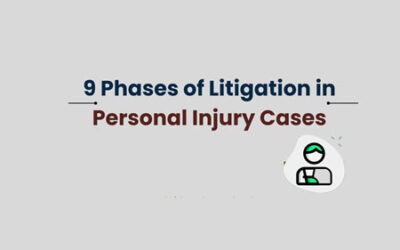Proper medical record review is the first step in disability determination. Just as any other disability, to qualify for SSDI benefits, the neurological disorder must last for more than a year or end in the patient’s death. The SSA (Social Security Administration) uses the Blue Book guidelines to determine whether a person’s disability is severe enough to qualify him or her for disability benefits. The neurological impairment need to be established by a detailed medical chart review to identify the diagnosis and treatment provided, and to accurately determine the extent of disability. Neurological disabilities can be the result of respiratory system problems, problems with the circulatory system, tumors, etc. Major symptoms such as tremors and involuntary movements, paralysis, muscle weakness, sensory disturbances, speech difficulties, breathing trouble, and mental impairments, should be documented in the medical record.
As some neurological disorders are more difficult to diagnose and document than others, the SSA may take longer to process a disability claim. Social security disability attorneys typically work with medical chart review companies that can quickly review the medical records and extract the relevant medical evidence that the SSA requires, which helps the claim to be processed more quickly and successfully.
Check out the infographic below

| Read our blog on Neurological Disorders That Qualify For SSDI And The Relevance Of Medical Chart Review |

![Exclusive New Year Deal: Enjoy FREE TRIAL + 25% OFF Your First Invoice [Infographic]](https://www.mosmedicalrecordreview.com/wp-content/uploads/2025/01/get-free-trial-plus-25-off-your-first-invoice-400x250.jpg)
![Exclusive Festive Deal: Enjoy FREE TRIAL + 25% OFF Your First Invoice [Infographic]](https://www.mosmedicalrecordreview.com/wp-content/uploads/2024/12/exclusive-festive-deal-enjoy-free-trial-25-off-first-invoice-400x250.jpg)
